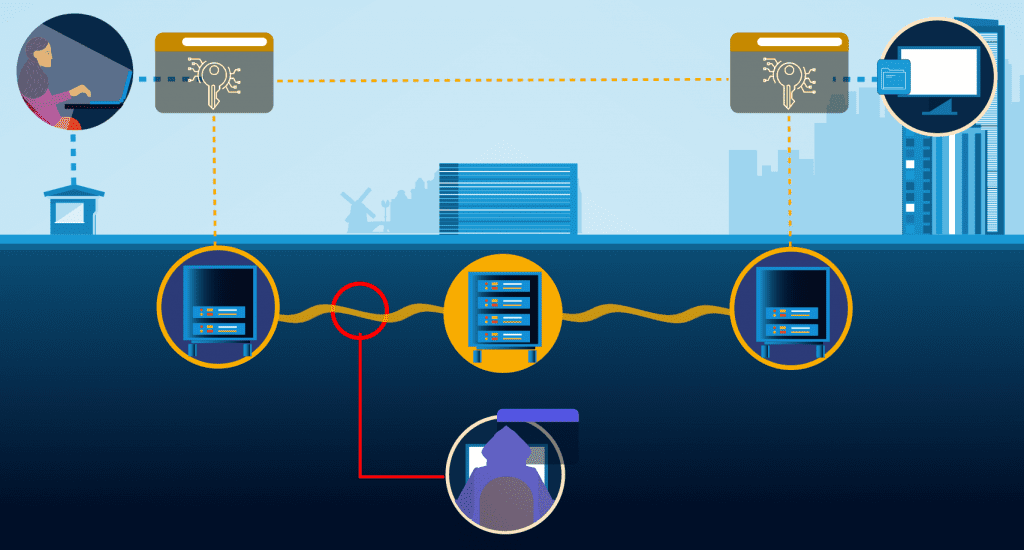

Introduction
In an era where digital communication is the lifeblood of legal processes, ensuring the confidentiality and security of sensitive information is paramount. This article delves into the revolutionary realm of quantum encryption and its application in safeguarding legal communications. From the basics of quantum encryption to its implications in legal contexts, we explore how this cutting-edge technology is reshaping the landscape of secure information exchange.
Understanding Quantum Encryption
Traditional encryption methods rely on complex algorithms that could potentially be cracked by advanced computing power. Quantum encryption, however, leverages the principles of quantum mechanics to secure communication channels. Quantum key distribution (QKD) is a primary application, allowing for the creation of unbreakable cryptographic keys through the unique properties of quantum particles.
Unbreakable Quantum Keys for Legal Communication
In legal communications, the need for confidentiality is non-negotiable. Quantum encryption provides a level of security previously deemed unattainable. The use of entangled particles ensures that any attempt to intercept or eavesdrop on a communication would disrupt the quantum state, immediately alerting the parties involved to the security breach.
Implications for Legal Proceedings
The application of quantum encryption in legal proceedings offers a paradigm shift. Attorneys, clients, and legal entities can exchange information with unprecedented confidence, knowing that their communications are shielded from potential adversaries. This technology not only protects sensitive data but also upholds the integrity of legal processes.
Challenges and Advancements
While the potential of quantum encryption in legal communications is immense, challenges remain. The integration of quantum technologies into existing communication infrastructures requires careful planning and investment. However, ongoing advancements in quantum computing and communication technologies are steadily addressing these challenges, paving the way for broader adoption in the legal sector.
Legal Compliance and Quantum Encryption
As with any technological advancement, legal compliance is a crucial consideration. Quantum encryption aligns with many existing legal frameworks governing data protection and confidentiality. Legal professionals must stay informed about the evolving regulatory landscape to ensure that their use of quantum encryption remains compliant with current and future laws.
Quantum-Safe Legal Infrastructure
With the advent of quantum computing, there is a growing concern about the potential vulnerability of traditional encryption methods. Quantum-safe or quantum-resistant algorithms are being explored to future-proof legal infrastructure. Quantum encryption serves as a proactive solution, offering a robust defense against the anticipated capabilities of quantum computers.
Integration Challenges and Solutions
Integrating quantum encryption into existing legal communication systems requires careful planning and collaboration between legal professionals and technology experts. While challenges such as cost and infrastructure compatibility exist, ongoing research and development aim to streamline the integration process, making quantum encryption a viable and accessible option for legal entities.
Global Perspectives on Quantum Encryption in Legal Communications
Quantum encryption’s impact extends beyond national borders. As legal proceedings increasingly involve cross-border communications, the adoption of quantum encryption can foster international collaboration by providing a secure and standardized framework for exchanging sensitive legal information.
Looking Ahead: Quantum-Secured Legal Landscape
As we peer into the future, the integration of quantum encryption in legal communications holds the promise of a more secure and resilient legal landscape. To explore further resources on Quantum Encryption in Legal Communications, you can visit Starmountain Resources. This platform offers insights into the latest developments, applications, and legal considerations surrounding quantum encryption.
Conclusion
Quantum encryption is not merely a technological advancement; it is a transformative force in securing legal communications. As legal professionals increasingly recognize the importance of safeguarding sensitive information, the adoption of quantum encryption is poised to become a cornerstone in fortifying the foundations of confidentiality and trust within the legal sphere.







